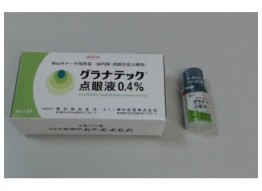
Are Japanese Traditional Kampo Medicines Really Effective?
The truth about the effectiveness of Kampo medicines
Japanese traditional Kampo medicines are gaining recognition for their contributions to modern evidence-based medicine. Rooted in ancient Chinese practices, Kampo has evolved significantly in Japan since the fifth and sixth centuries, becoming a distinct form of Eastern medicine. Kampo uniquely utilizes natural ingredients from plants, animals, and minerals to create effective herbal remedies.
The Historical Context and Development of Kampo
Kampo's introduction to Japan in the fifth to sixth century marked its integration into Japanese culture. The oldest surviving medical encyclopedia in Japan, written by Yasuyori Tanba in 984 A.D., underscores Kampo's long-standing tradition. Known as the Nakarai Family's Denpon, this text is preserved as a national treasure at the Tokyo National Museum. Over the centuries, rigorous empirical studies in Japan have systematized Kampo, differentiating it from its Chinese roots and establishing it as a unique branch of traditional medicine.
Modern Applications of Kampo in Japanese Medicine
Today, Kampo is widely used in Japan for both medical treatment and preventive care. It serves not only as an alternative to Western medicine but also as a part of daily healthcare and fitness routines. Japanese doctors often prefer Kampo medicines due to their favorable safety profile, with minimal serious contraindications or side effects. These medicines are prescribed by licensed medical doctors and are also available over the counter at pharmacies and drug stores.
A 2010 survey by Nikkei Medical Custom Publishing revealed that 86.3% of physicians reported prescribing Kampo medicines, indicating their extensive integration into modern medical practices. This wide acceptance among medical professionals underscores the trust in Kampo's efficacy and safety.
Evidence-Based Validation of Kampo Medicines
Numerous scientific studies support the effectiveness of Kampo medicines. The National Library of Medicine hosts over 2000 studies on Kampo, highlighting its significance in evidence-based medicine. Some notable studies include:
- "Yokukansan in the treatment of behavioral and psychological symptoms of dementia: a systematic review and meta-analysis of randomized controlled trials"
- "Tokishakuyakusan alleviates ultraviolet-induced skin pigmentation by decreasing the expression of melanogenesis-related enzymes"
- "Short-term impact of kampo goreisan in patients with congestive heart failure refractory to tolvaptan-incorporated medical therapy"
- "Effect of Shakuyaku-kanzo-to in patients with muscle cramps"
- "A pilot study of the multiherb Kampo medicine bakumondoto for cough in patients with chronic obstructive pulmonary disease"
These studies provide strong evidence that Kampo medicines are serious equivalents to Western medications, offering therapeutic benefits validated by modern science.
Benefits of Using Kampo Medicines
Kampo medicines offer several benefits:
- Natural Ingredients: Made from plant, animal, and mineral origins, they align with those seeking natural treatment options.
- Minimal Side Effects: Kampo medicines are known for their low risk of serious side effects, making them a safe alternative.
- Preventive Care: They are used not only for treating illnesses but also for maintaining overall health and wellness.
Embracing Kampo Medicines for Health and Wellness
The growing acceptance and integration of Kampo medicines into modern medical practices demonstrate their value in today's healthcare landscape. By bridging traditional and modern medicine, Kampo offers a holistic approach that is both safe and effective. Whether used for treating specific ailments or as part of a daily health regimen, Kampo medicines stand as a testament to the enduring power of traditional Japanese medicines in modern evidence-based medicine.


